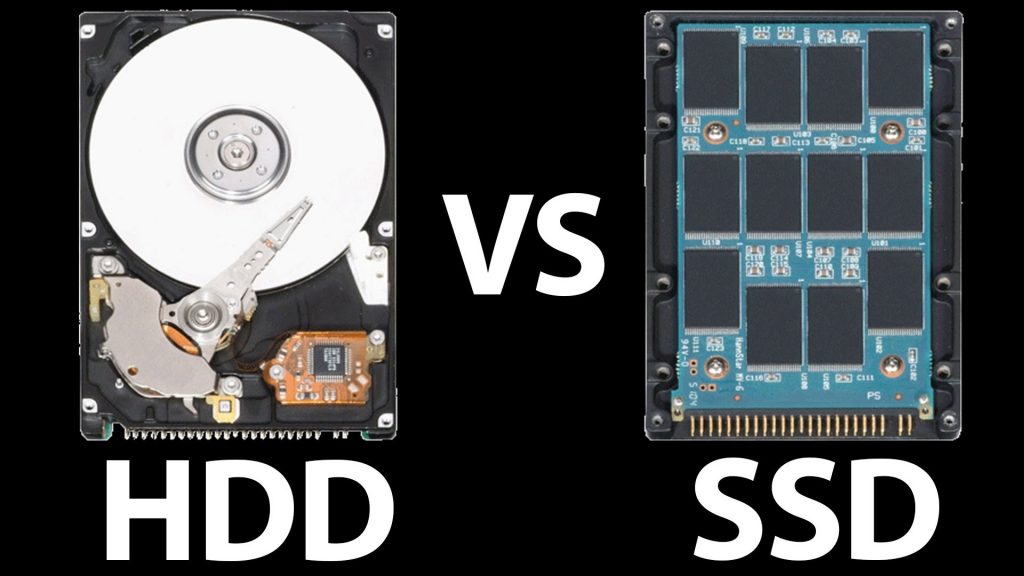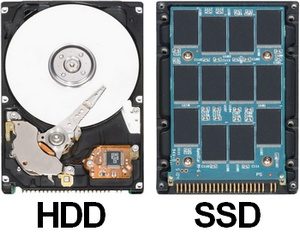Having dilemma is not a pleasant situation. Especially when it comes to choosing among something traditional and something new and trendy. That is why we have made this comparison of two most represented types of hard disk drives. Without further delay, let us see which solution fits you better.

Durability
When compared by resistance to physical damage, SSD (Solid State Drive) has starting advantage because of its structure. While HDD (Hard Disk Drive) is consisted of several disks covered in material sensitive to magnetism above which moving “arm” with head for writing and reading is set, SSD has no moving parts, practically it is a block of memory chips, similar to that used in every USB drive. Due to this fact, SSD is far more resistant to shocks and hits, but this does not mean that it is indestructible. That is why this approach had found his primary purpose in laptops. We carry them around, and if you just put it on the table a bit more aggressive, it can damage HDD drive, especially if laptop is turned on, and the disk is working.
Power Usage
In terms of energy consumption, SSD drive uses real minimum, about 2W; while HDD will require triple of that, somewhere around 6W. Although this difference seems much, on a laptop it will give you approximately half an hour longer battery life, and on a desktop PC you will have less power usage, thus sparing your power unit a bit. Therefore, SSD drive can give much more if used on a laptop, while you can opt for standard hard drive.
Noise
People often neglect how much noise their PC or a laptop is producing. We get used to it quite fast, but in long terms it can cause increased level of stress. Because of its moving parts, HDD produces much more noise, for the moving arm needs to go back and forth in order to find the data you need, and all of that is moved by tiny electric motor. On the other hand, SSD produces the amount of noise on level of standard USB drive, meaning none.
 Space Available
Space Available
Until recently, HDD had held primary place in terms of space available in this format. With maximum storage space topping at 10TB, this system was without competition. However, things are changing fast, so today you can easily find SSD drive of 4TB capacity. Moreover, advancement of chip manufacturing industry will definitely push this limit beyond reach of HDD drive. With new “Skyscraper” technology it will be possible to significantly reduce space required for standard processing unit, while beefing up that which is under the hood at the same time.
Speed
Faster file transfer and memory reading is imperative when it comes to hard drives. That is why we will let the numbers speak. HDD drive has quite modest transfer speed, around 100 MB per second. Of course, this speed is sufficient for average and casual users. Those who seek something better and faster, will opt for SSD hard drive, because on average, it sports above 200 MB per second, but it can go up to 500 MB/s with some top-shelf models.
Basically, it all comes down to your needs. If you are a professional which uses computer a lot in his work, SSD should be your primary goal. Although it is quite expensive (about 0.10$ per TB) it is money well spent. On the other hand, if you need cheap storage space intended for average user, then HDD is your choice. In any case, assess what are your possibilities and needs, so plan according to this.

























